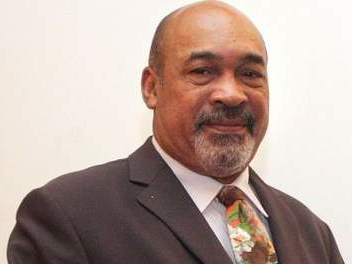According to the current Chair of the Caribbean Community (CARICOM), Barbados Prime Minister Mia Mottley, it would be inappropriate for CARICOM to pass judgment on Suriname President Desi Bouterse until the matter of his conviction for 15 murders in 1982 is fully resolved by Court.
Responding to questions at a press conference yesterday held at the CARICOM Secretariat Mottley noted that while Bouterse was convicted of murder in his home state he has appealed his conviction and therefore the matter is sub judice. “We are not in the position to pass judgment on the merits of the appeal or the demerits of the appeal. To that extent we have to wait,” she stressed adding that for her it is passing strange that this matter has taken approximately 38 years and that there is also an amnesty in place for other actions taking place during that period of instability in that country.
“It is not for me to comment but there are others who will ask the question as to why there is an amnesty for a significant period of the time of instability and there is not for another period,” she said.
Last November Bouterse was sentenced to 20 years in prison for the murder of 15 adversaries who spoke out against his seizure of power in a February 1980 coup.
As a junior military officer, Bouterse took part in the 1980 coup against Suriname’s first Prime Minister, Henck Arron, just five years after independence from the Netherlands. He immediately promoted himself to army chief-of-staff, becoming effective ruler of the nation of 560,000 people.
Bouterse led the South American country through the 1980s as head of a military government, then assumed office again in 2010 and secured re-election five years later.
During his tenure in the December 1982 15 prominent political opponents in Suriname were detained and killed. Those killed included union leaders, activists and journalists and they were killed in a colonial fort in the capital city of Paramaribo in an incident now referred to as the “December killings”.
In 2012 the National Assembly passed an Amnesty Bill in an attempt to protect those accused of the December killings but it was later ruled unconstitutional.






